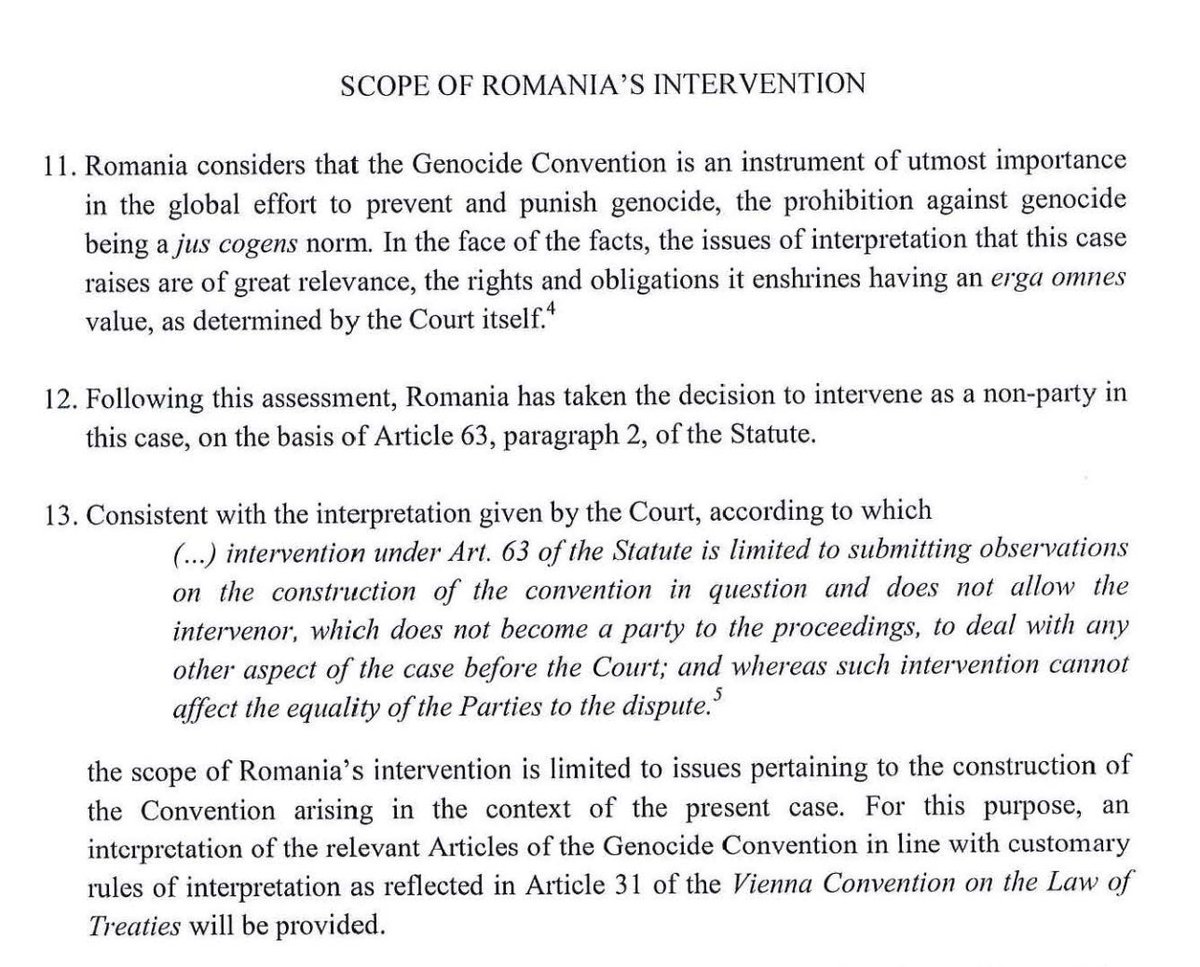Text of the #UK's declaration of intervention in #Ukraine v #Russia, pursuant to article 63 of the #ICJ Statute, now available on the Court's website: icj-cij.org/public/files/c…
Some observations.🪡 1/20 (it's the longest declaration yet...)
Some observations.🪡 1/20 (it's the longest declaration yet...)
https://twitter.com/CIJ_ICJ/status/1555584362300801024
As preliminary matter, UK is first intervener to refer to ICJ's recent The Gambia v Myanmar judgment, such as in underlining its erga omnes partes legal interest (though tbf, 🇱🇻 submitted its declaration the day before judgment and 🇱🇹 on the day). 2/ 

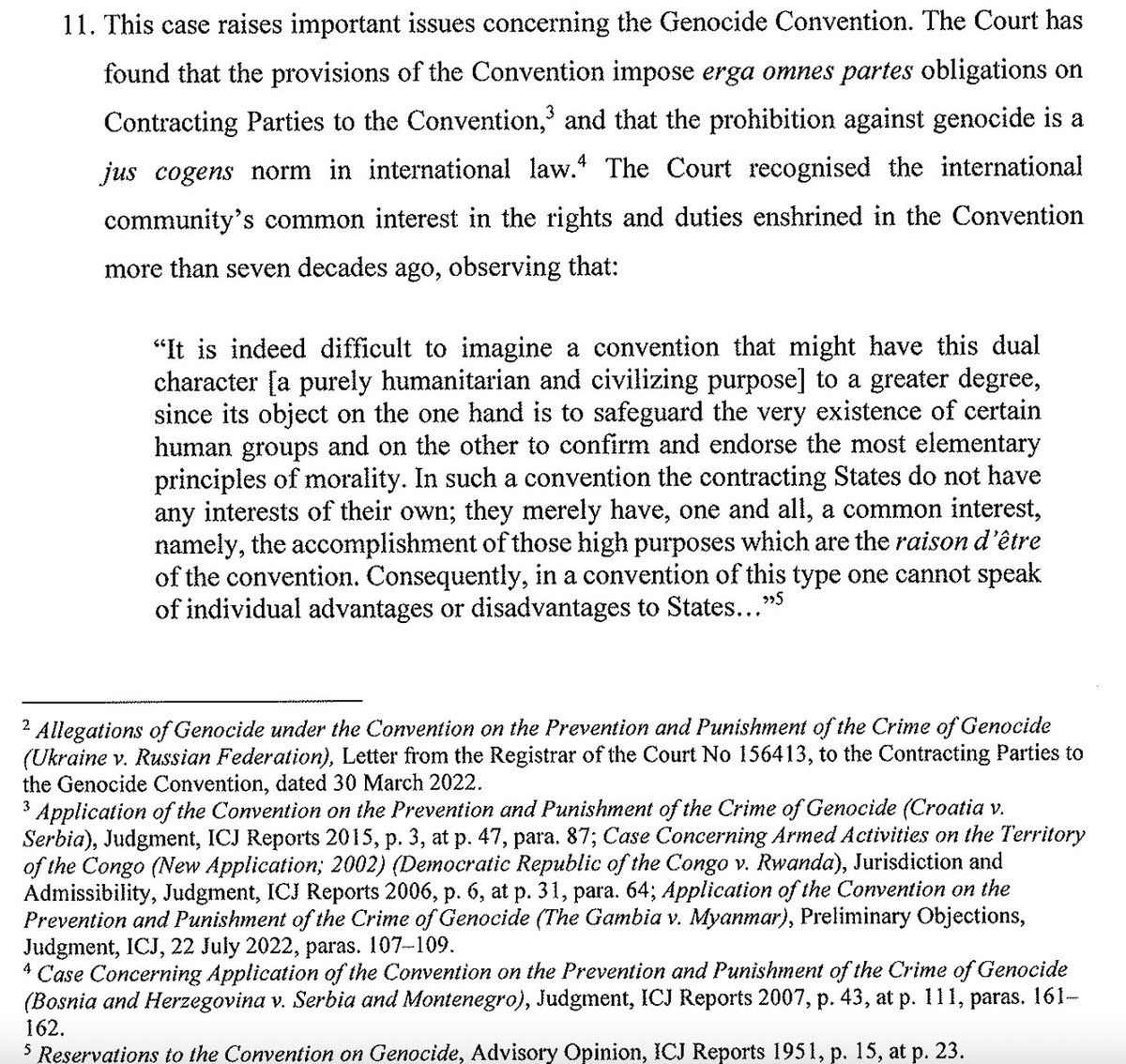

UK summarily addresses issue of capacity to intervene on jurisdictional matters, but is seemingly first intervener to consider different scenarios on how case may procedurally progress: either one-stage-case where it will address both issues of jurisdiction and merits... 3/ 

or two stages where in the first it will address jurisdiction and in the second merits. This division also informs the structure of UK's declaration.
UK also emphasise that it reserves right to supplement its observations as case progresses, given present early stage. 4/
UK also emphasise that it reserves right to supplement its observations as case progresses, given present early stage. 4/
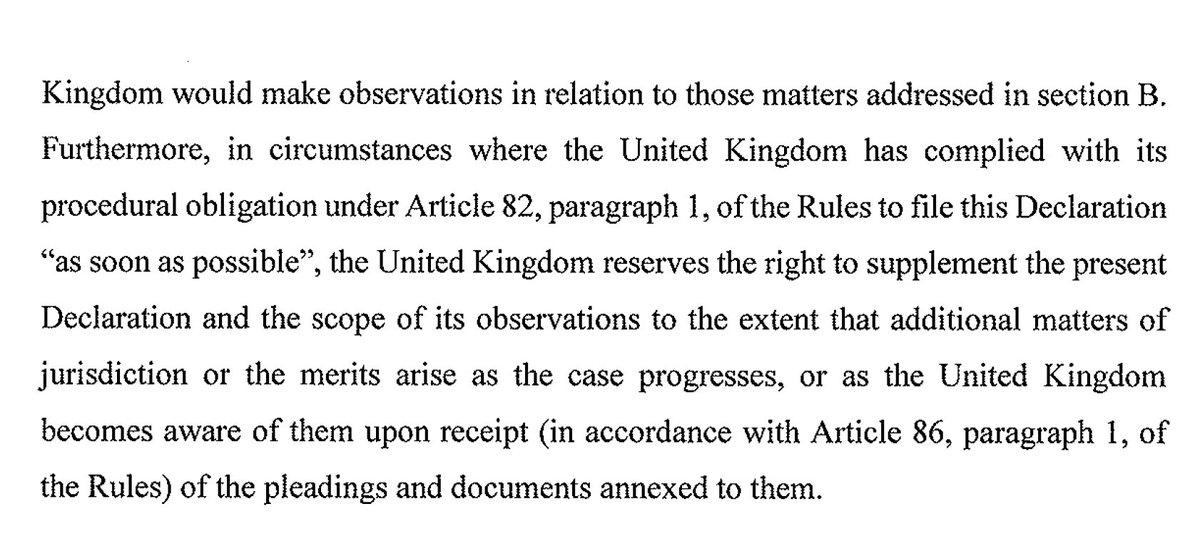
In enumerating Genocide Convention provisions it considers the construction of which are in question at the jurisdictional stage, the UK lists arts I, VIII, IX. The relevance of art IX (comprmissory clause) for the jurisdictional stage is self-evident. 5/ 
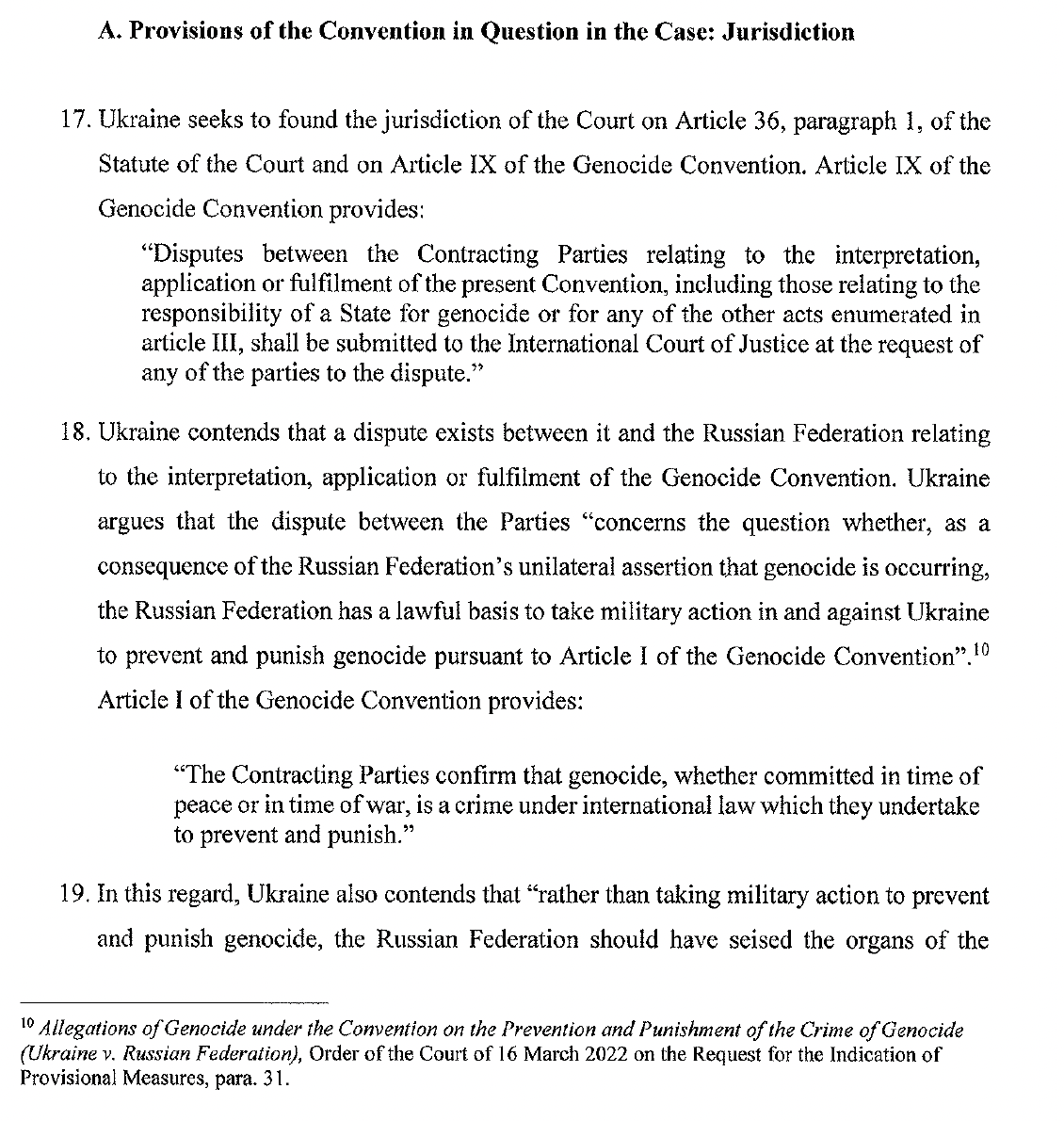
Otherwise, the invocation of arts I and VIII as relevant to issues of jurisdiction appears to be a result of how Ukraine has framed the existence of a dispute between itself and Russia. 6/ 

As for the merits, the UK considers arts I, II, III, IV, V, VI, VIII to be in question – enumerating more provisions than the other interveners to-date. However, these provisions constitute part of the context in interpreting art I. 7/ 




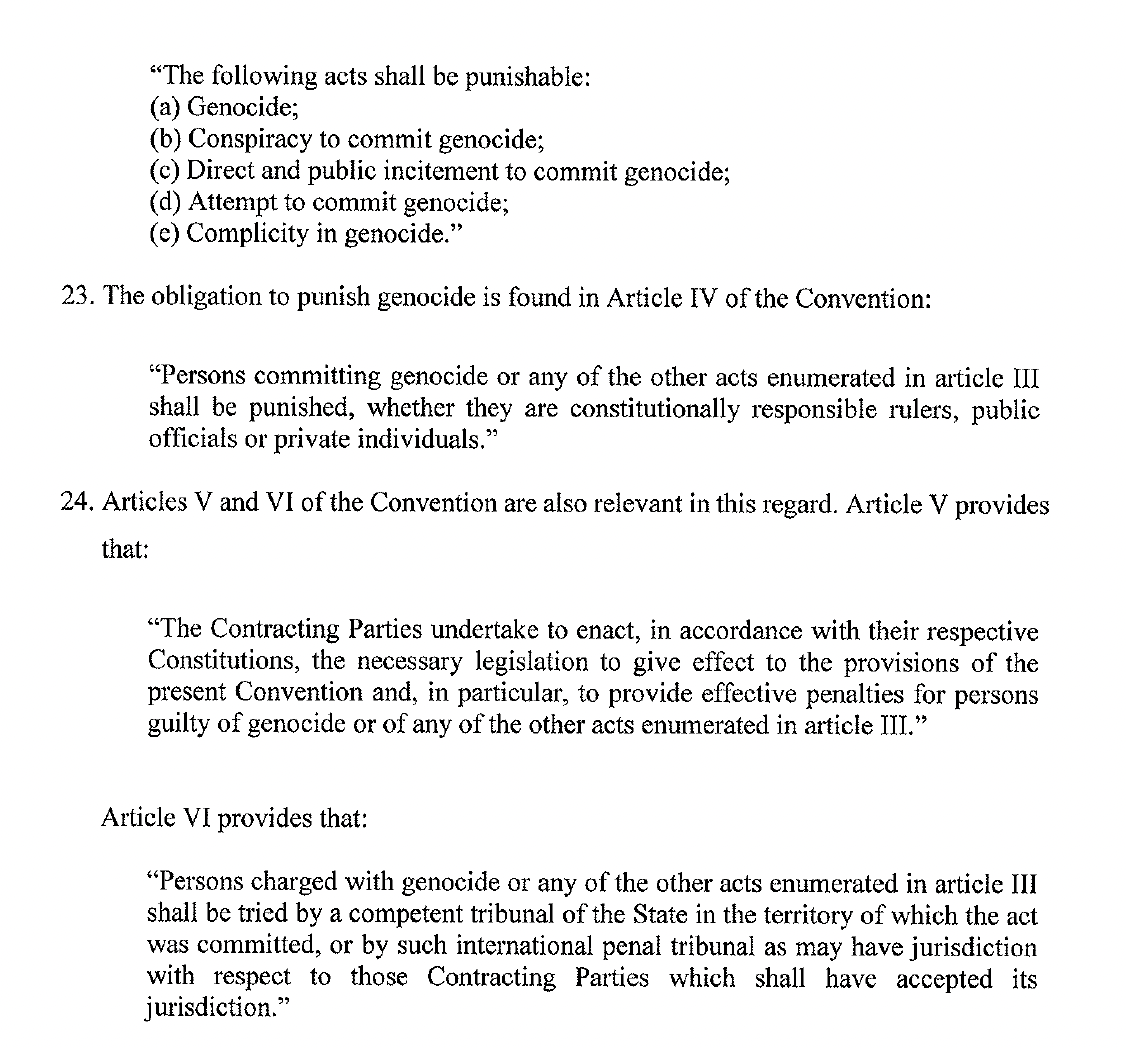
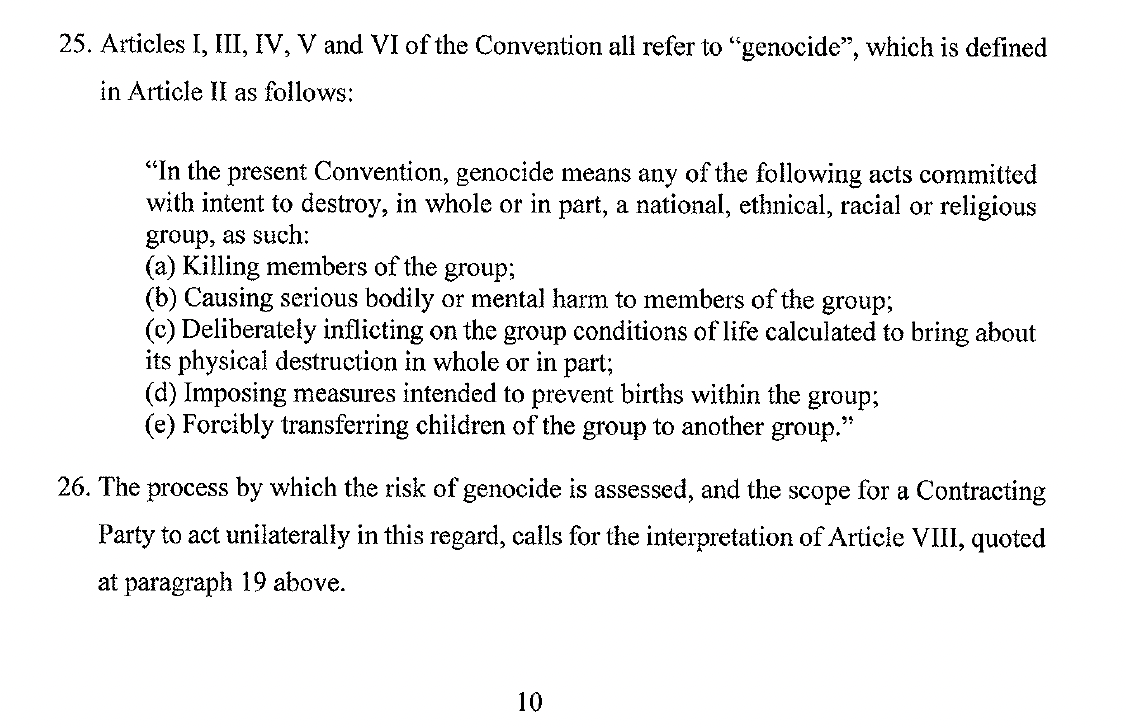

Moving on to the actual construction the UK gives to the provisions in question, starting with jurisdictional issues. The UK directly challenges the opinions of VP Gevorgian and Judge Bennouna in the provisional measures order on jurisdiction regarding non-violation claims. 8/ 

The UK (persuasively) argues that the compromissory clause is broad enough to encompass disputes relating to the conduct of the applicant, i.a. relying on ICJ's construction of art IX in the recent The Gambia v Myanmar judgment. 9/ 


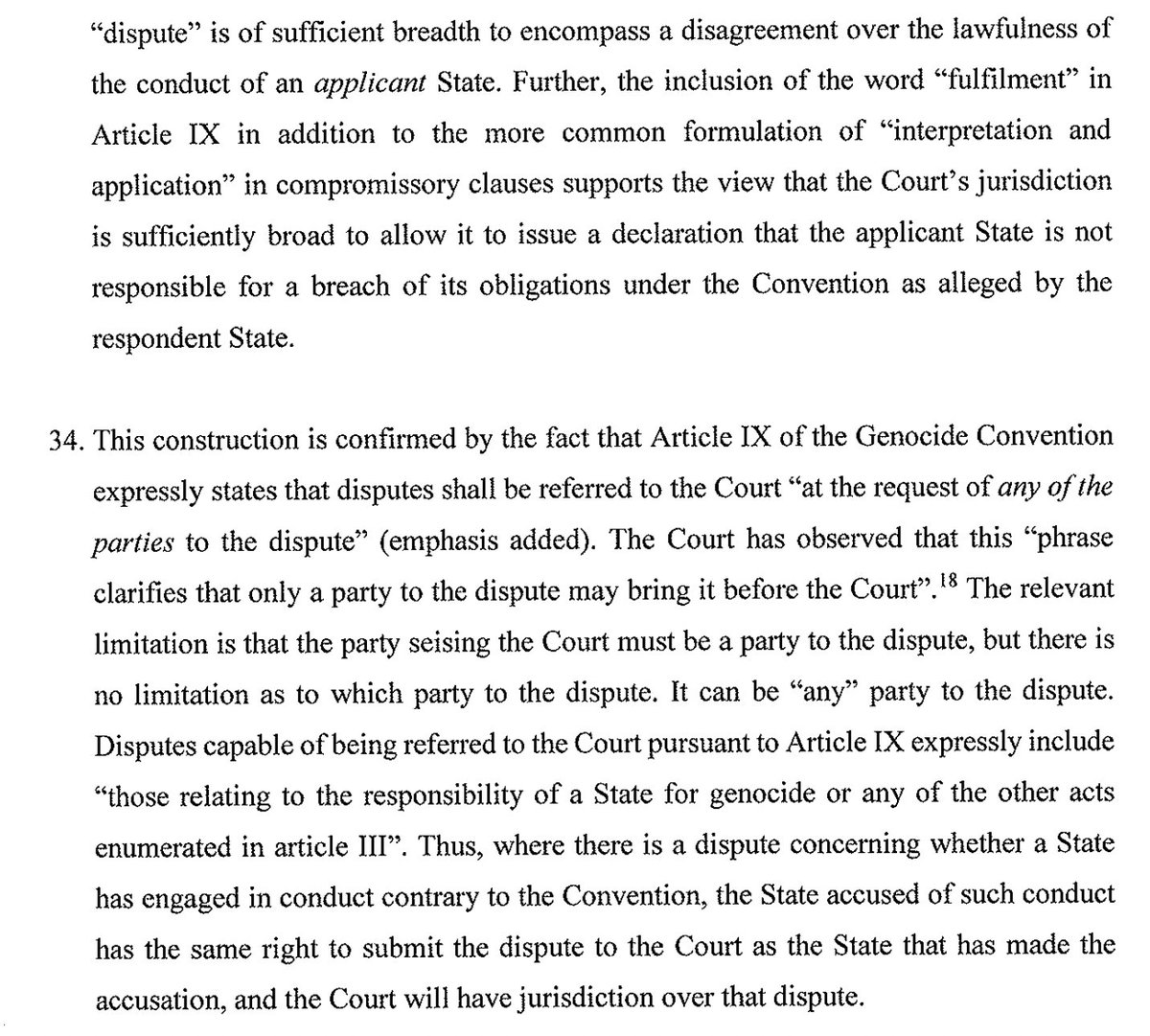
UK then offers constructions on jurisdiction regarding Russia's alleged violations of the Convention fall under Convention's provisions. UK argues that jurisdiction extends to determining whether a party acted in good faith in performing their obligations under Convention. 10/ 

The UK directly challenges Russia's interpretation rejecting possibility of raising issues relating to use of force through Convention's compromissory clause, arguing that jurisdiction extends to whether Russia's acts constitute "fulfilment" of the Convention. 11/ 

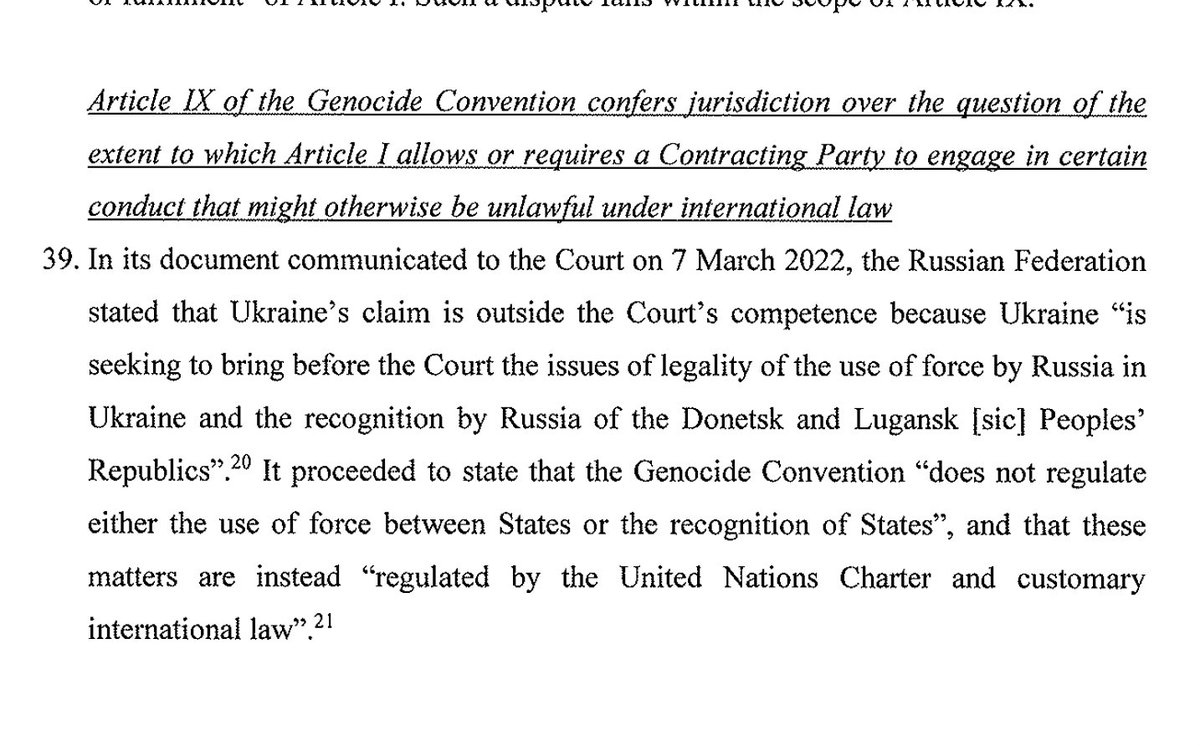
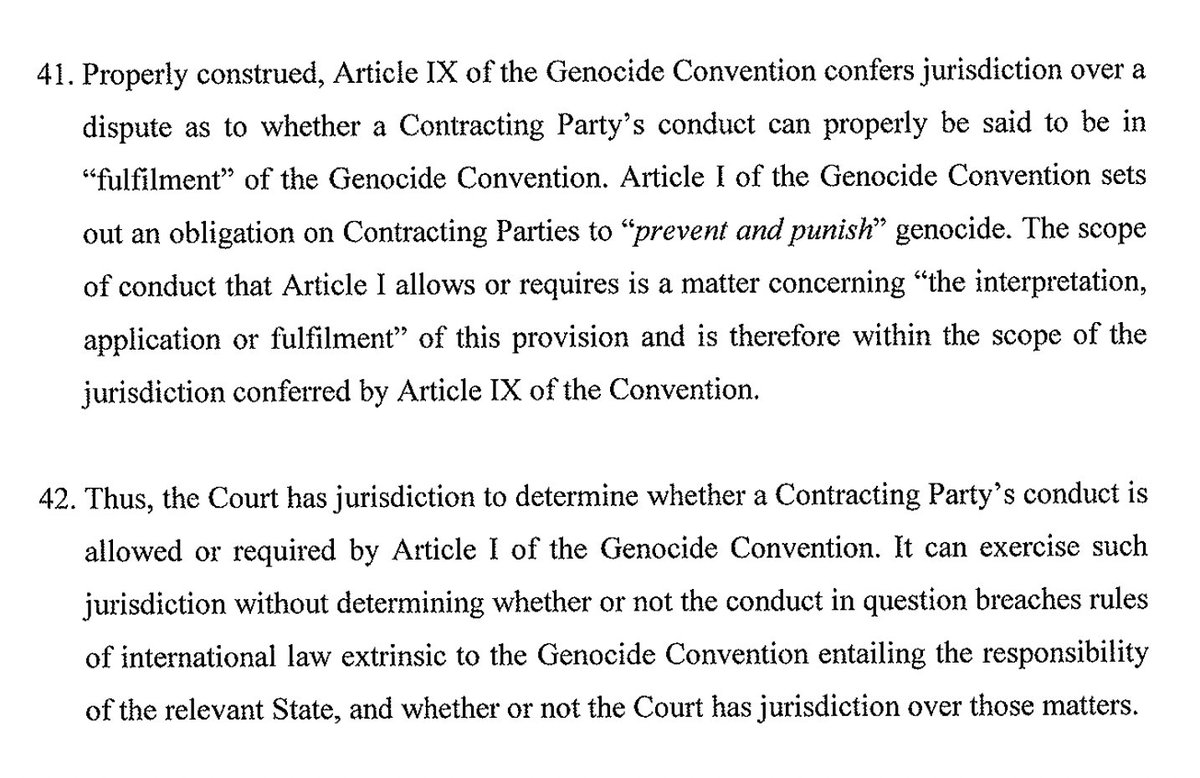
Finally, still on jurisdiction, UK takes issue with Russia's seeming attempt to argue that term "dispute" in art IX has a meaning peculiar to the Genocide Convention. Very standard argument; no surprises the UK (dare I say correctly) championing "awareness" criterion. 12/ 



Moving on to the UK's constructions relating to the merits, it is the first intervener to provide a more detailed analysis of the (very strict) elements of "genocide" under the Convention, drawing from the ICJ's and #ICTR's jurisprudence. 13/ 



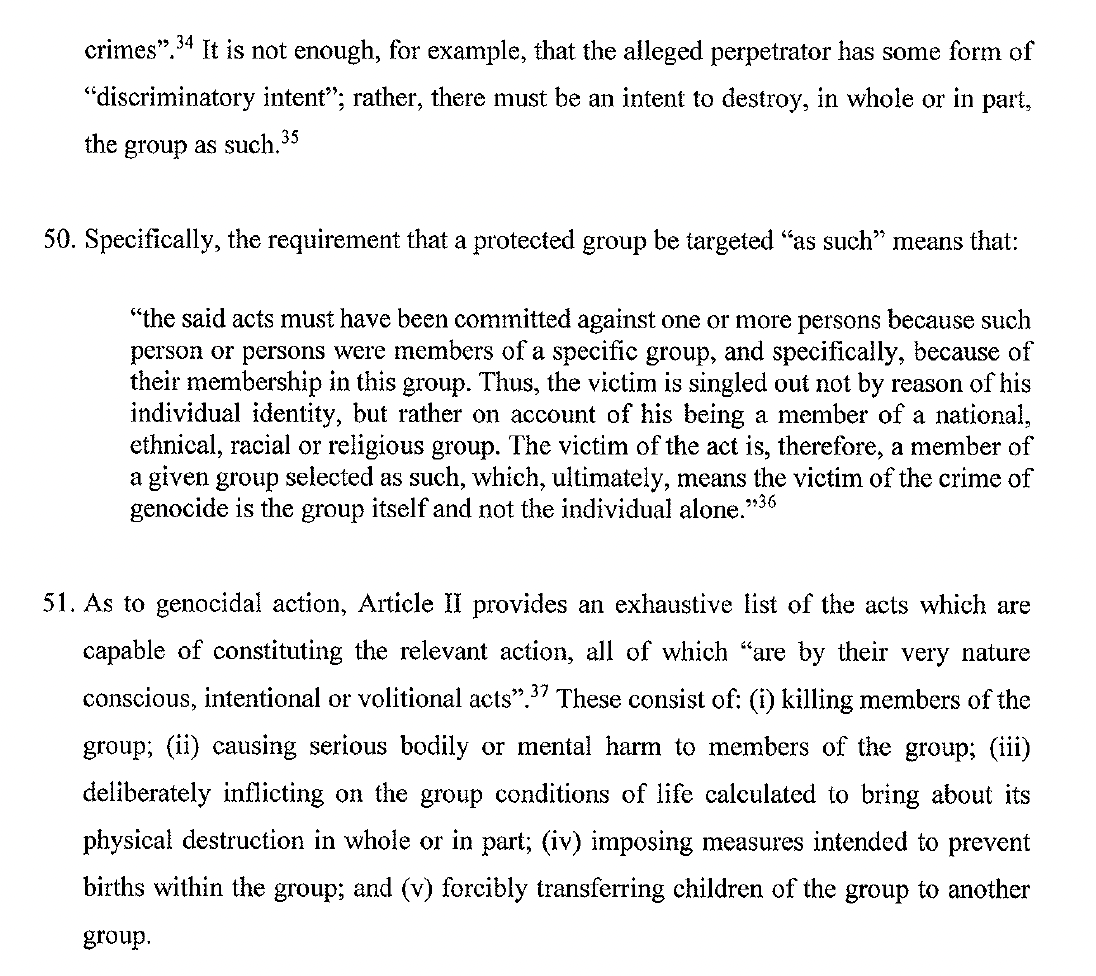

Similar to 🇱🇻&🇳🇿, UK emphasises that the obligation to prevent genocide must be fulfilled in good faith. Like 🇱🇻, UK also references – expanding further – on the Convention's travaux's support for this position. 14/ 





Additionally, like 🇱🇻🇱🇹🇳🇿, UK underlines the relevance of international fora in upholding obligation to prevent. However, UK does go out of its way to emphasise that recourse to UN organs (art VIII) and the ICJ (art IX) is not obligatory under Convention. 15/ 


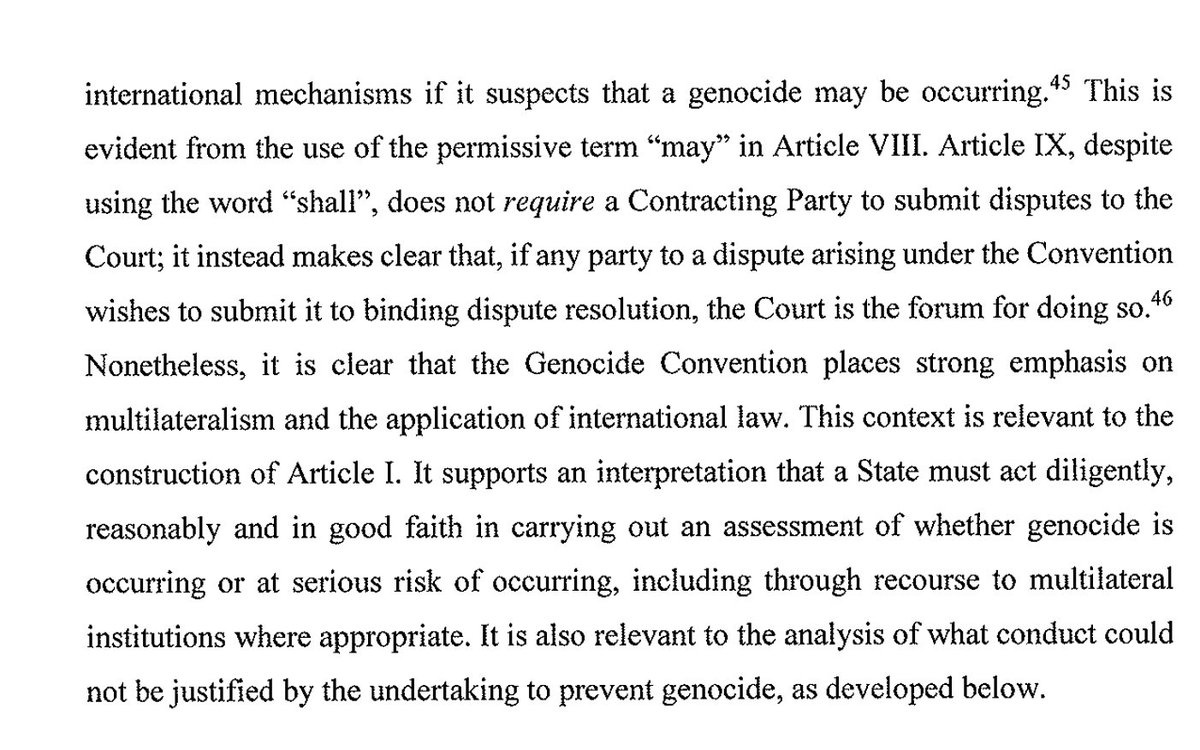
The UK also notes that art I cannot be relied on for permitting otherwise unlawful acts under international law *if* genocide has not be established in good faith, objectively etc.
UK seems to be leaving door open for possibility that art I can authorise some unlawful acts. 16/
UK seems to be leaving door open for possibility that art I can authorise some unlawful acts. 16/
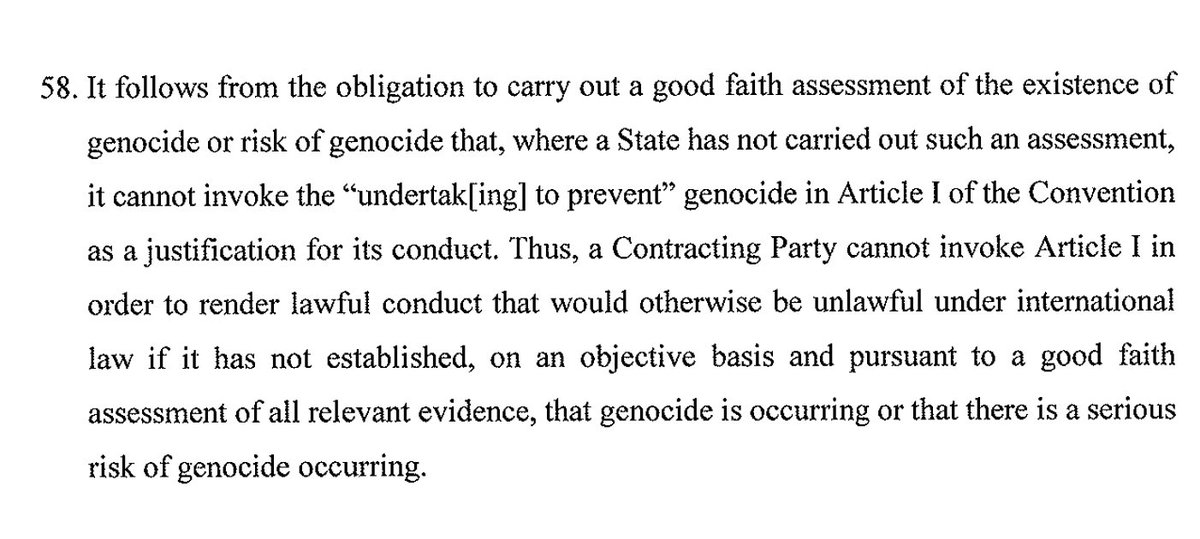
Either way, the UK then emphasises that art I can in no instance justify war crimes, crimes against humanity or aggression.
UK also underlines that ICJ need not address question of legality of humanitarian intervention (but is this relevant for whether there's aggression?). 17/


UK also underlines that ICJ need not address question of legality of humanitarian intervention (but is this relevant for whether there's aggression?). 17/


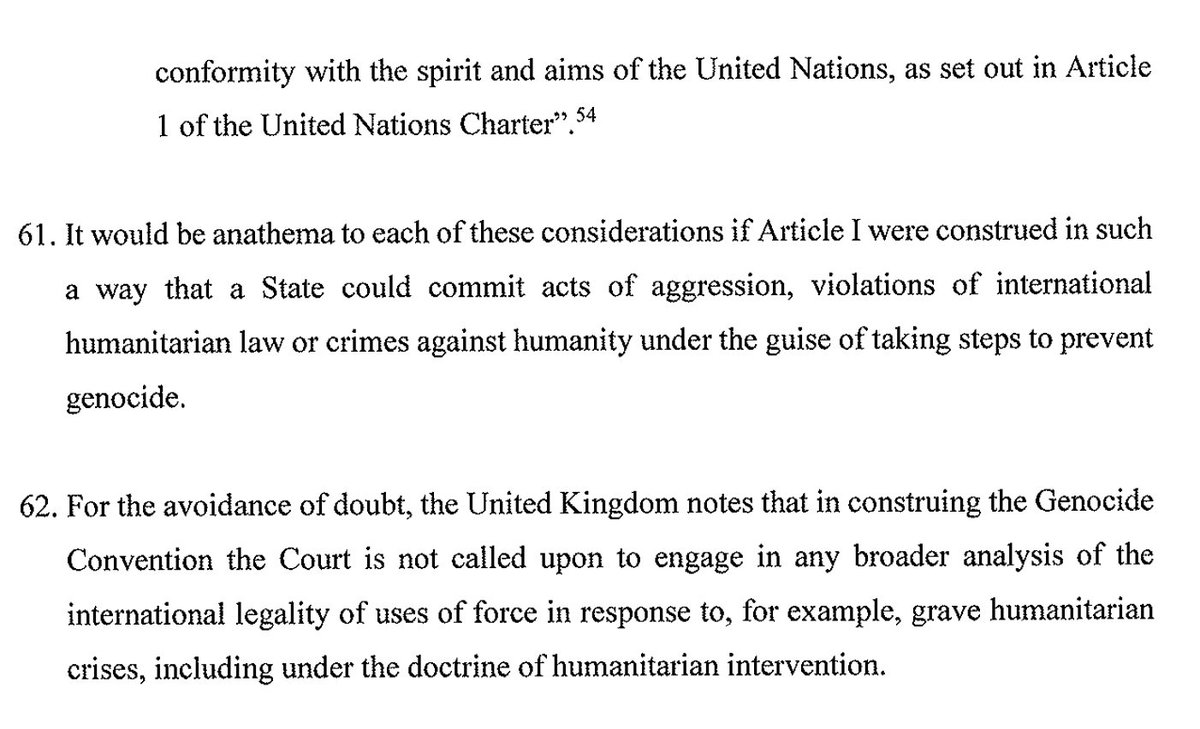
Finally, UK rejects notion that use of force can be a means of punishing genocide under the Convention – in the process seemingly rejecting idea of inter-state punishment under international law. 18/ 

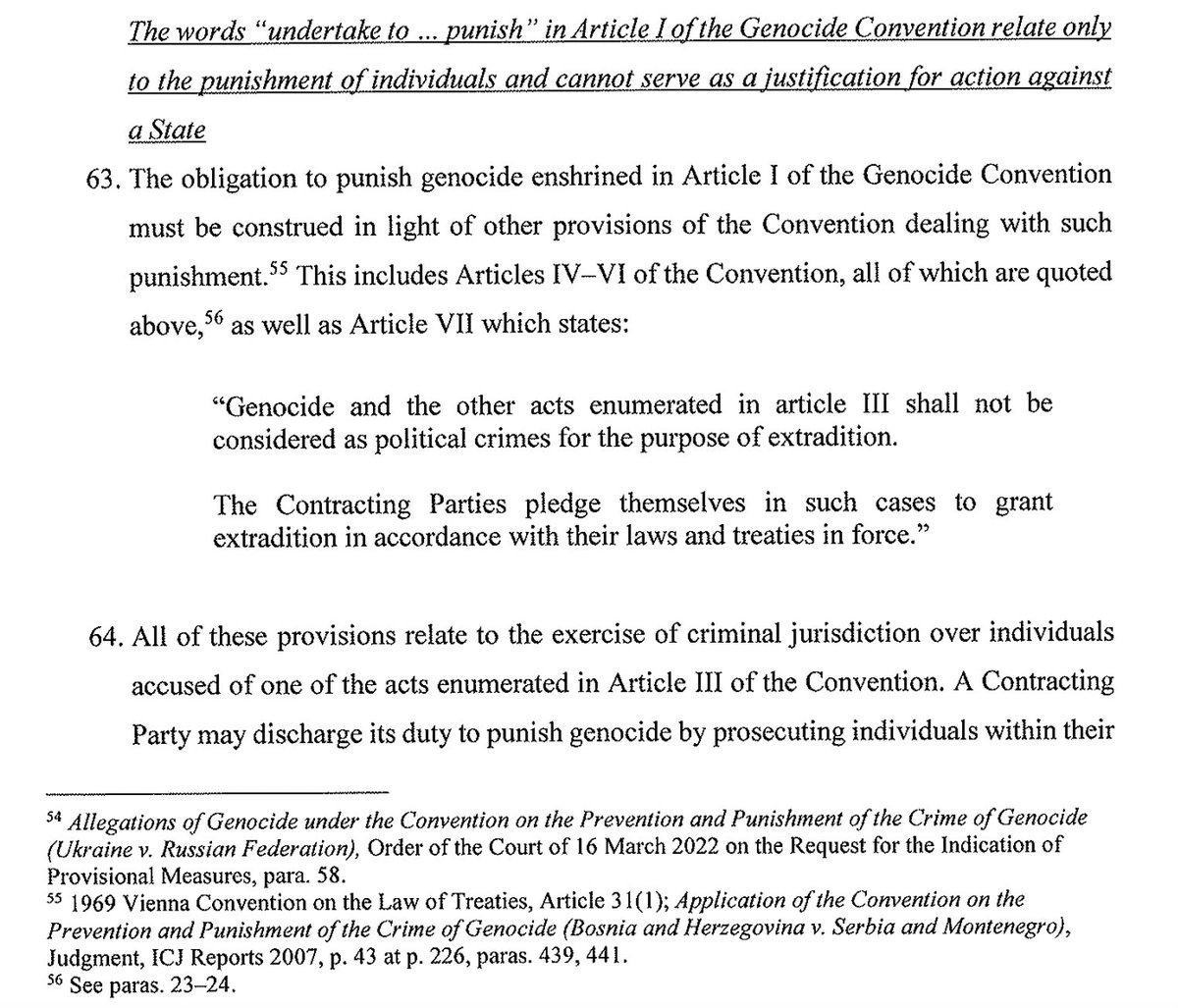
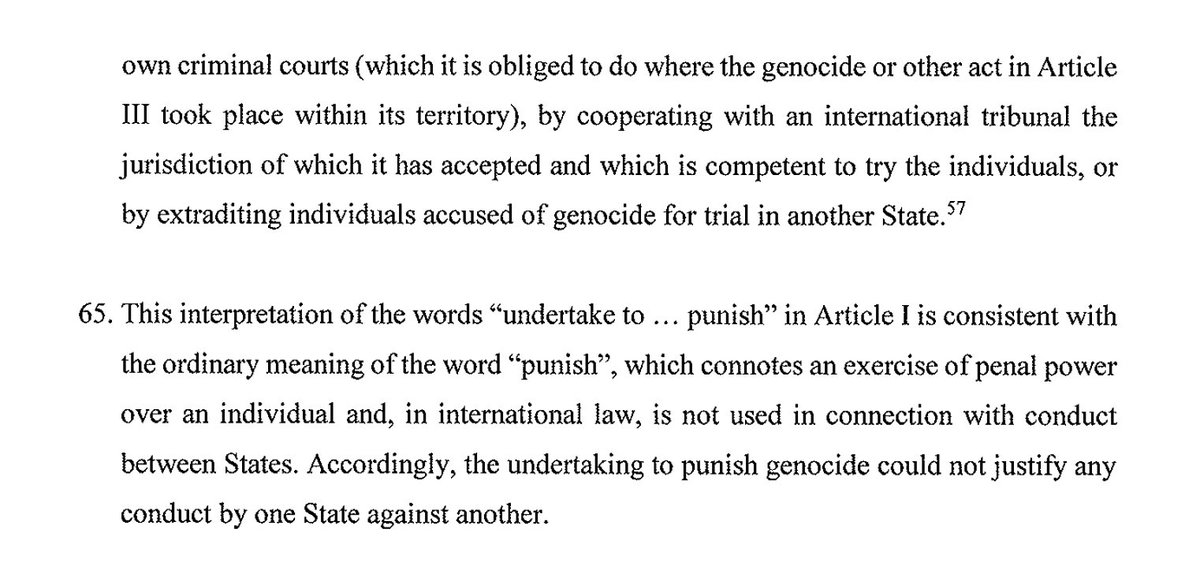
In conclusion, similar to 🇳🇿, UK avoids making radical arguments. While arguing that a state "must" make determinations of genocide in good faith, the UK's main focus is on whether and when a state can rely on art I to justify measures which are otherwise unlawful. 19/
The UK does cover additional ground, yet to be fully addressed by other interveners; particularly, its attention to different procedural scenarios in the case moving forward and its more detailed analysis of the elements of genocide under the Convention. 20/20
• • •
Missing some Tweet in this thread? You can try to
force a refresh




















